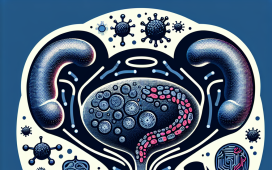The brain is a complex organ that is constantly changing and adapting. This ability of the brain to change is called neuroplasticity. Neuroplasticity is what allows us to learn new things, form new memories, and recover from injuries.
In recent years, there has been a growing interest in neuroplasticity and its potential for cognitive enhancement. Cognitive enhancement is the use of interventions to improve cognitive function, such as memory, attention, and learning.
There are a number of promising new insights into neuroplasticity and cognitive enhancement. These insights are coming from a variety of fields, including neuroscience, psychology, and pharmacology.
Here are some of the most promising new insights into neuroplasticity and cognitive enhancement:
- Exercise: Exercise is a powerful way to promote neuroplasticity. Exercise can help to improve cognitive function in a number of ways, including increasing blood flow to the brain, stimulating the growth of new neurons, and strengthening existing neural connections.
- Diet: Diet can also play a role in neuroplasticity. A diet rich in fruits, vegetables, and whole grains can help to improve cognitive function. A diet that is high in processed foods and sugary drinks can damage the brain and impair cognitive function.
- Sleep: Sleep is essential for neuroplasticity. Sleep helps to consolidate memories and strengthen neural connections. Sleep deprivation can impair cognitive function and make it difficult to learn new things.
- Meditation: Meditation is a mind-body practice that has been shown to improve cognitive function. Meditation can help to increase focus, attention, and memory. It can also help to reduce stress and anxiety, which can have a negative impact on cognitive function.
- Transcranial direct current stimulation (tDCS): tDCS is a non-invasive brain stimulation technique that has been shown to improve cognitive function in a number of ways. tDCS involves using electrodes to deliver a weak electrical current to the brain. This current can help to improve cognitive function by increasing blood flow to the brain, stimulating the growth of new neurons, and strengthening existing neural connections.
These are just a few of the most promising new insights into neuroplasticity and cognitive enhancement. As we learn more about the brain, we can develop even more effective interventions to improve cognitive function and prevent cognitive decline.








